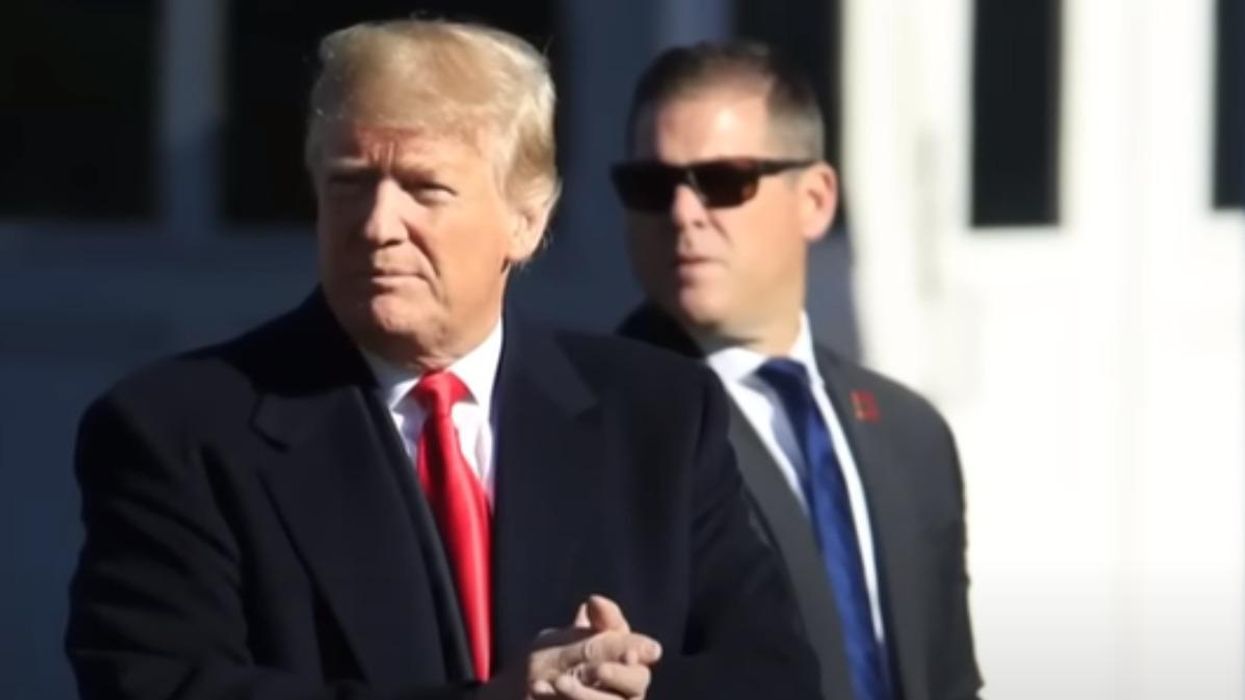
Donald Trump
Today we begin with a quiz. What is the most important responsibility of the president of the United States?
a. Protecting our security interests around the world.
b. Promoting a healthy economy.
c. Combating climate change and other environmental problems.
d. Avoiding nuclear war.
e. Fostering racial equity.
The answer is: none of the above. All of these obligations are important, and any president who neglects them deserves criticism. But they are ultimately secondary matters.
The most important obligation of the president is enshrined in the oath of office: to "preserve, protect and defend the Constitution of the United States." Aside from the simple duty to "faithfully execute" the office, that is the only responsibility specified in the oath. Nothing else a president does matters so much.
Donald Trump is remembered for the brazen lie he perpetrated on his first day in office, when his press secretary told reporters that his inauguration crowd was the biggest ever. But that wasn't his first lie as president. His first came in his recital of the oath, when he swore to do something he had no intention of doing: that stuff about the Constitution.
Many presidents have taken actions that press the limits of their constitutional authority. Thomas Jefferson secured the Louisiana Purchase even though the Constitution gave him no power to acquire territory. Several have conducted wars without getting a declaration of war from Congress, as the framers intended. But no president has exhibited such contempt for the Constitution as Trump.
As the House committee investigating the January 6 attack has documented in exhaustive detail, he actively encouraged an armed mob to storm the Capitol, stop the certification of Joe Biden's election victory and provide the second term the voters had denied him.
The Constitution provides a mechanism for choosing a president. To Trump, however, it meant nothing because it didn't keep him in power. He had every right to go to court to contest the results in states he lost, but those lawsuits were an all-encompassing failure. Even judges appointed by Trump rejected his claims, because they had no basis in fact.
On July 14, a group of distinguished Republican lawyers and former judges issued a 72-page report that examined each of the Trump campaign's allegations of fraud and reached this conclusion: "There is absolutely no evidence of fraud in the 2020 Presidential Election on the magnitude necessary to shift the result in any state, let alone the nation as a whole. In fact, there was no fraud that changed the outcome in even a single precinct" (my emphasis).
But Trump didn't let facts deter him. He pressured election officials to alter their vote counts. He promoted the acceptance of fake electors who would override their state results. He urged Acting Deputy Attorney General Richard Donoghue to "say the election was corrupt and leave the rest to me and Republican congressmen." He demanded that Vice President Mike Pence block the election certification.
When those efforts proved unavailing, he urged the people attending his rally on the Ellipse on Jan. 6 — including some he knew to be armed — to go to the Capitol and "fight like hell." He told them he would join them, and only the firm refusal of the Secret Service kept him away.
One line in his speech that has gotten little attention raised the prospect that Biden would become president. "We're just not going to let that happen," Trump vowed. His followers, some of them chanting, "Hang Mike Pence," did their best to vindicate that claim.
As the committee and its witnesses showed in Thursday's hearing, Trump had plenty of time to put a stop to the assault. But time was not the problem. The problem was that he didn't want it to stop. He wanted it to continue and succeed.
So he watched TV coverage, spurning aides, friends, and family members who pleaded with him to make a public statement telling the Capitol rioters to cease and desist. For 187 minutes, he sat idly as the mob rampaged through the seat of American democracy.
The lives of Pence, his family, Capitol police Secret Service agents, members of Congress and congressional staff were in dire peril. But Trump wouldn't lift a finger to protect them.
That day, he not only declined to preserve, protect and defend the Constitution of the United States; he led, approved and facilitated a ferocious attempt to cast it aside. And he showed no remorse afterward.
Other presidencies have been successes or failures. Trump's was something unprecedented: a profound betrayal.
Reprinted with permission from Creators.








